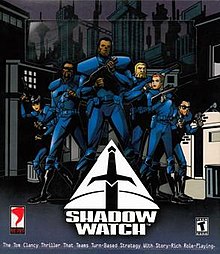
Shadow of Memories is a mystery adventure game developed by Konami Computer Entertainment Tokyo and published by Konami. Originally released for the PlayStation 2 in 2001, it was later ported to Xbox and Microsoft Windows in 2002. A PlayStation Portable version was released on October 1, 2009 in Japan and on January 26, 2010 in North America.

Star Wars: Force Commander is a real-time strategy video game released for the Microsoft Windows platform in 2000. It was co-developed by Ronin Entertainment and LucasArts, and published by LucasArts. Its plot interweaves between Star Wars: A New Hope and Return of the Jedi, taking place in key battles. Peter McConnell created remixed tracks of John Williams's original score with influences from hard rock and techno music.

Starlancer is a space-based science fiction flight simulator computer game, created by Erin and Chris Roberts, and developed by Warthog Games under the auspices of Digital Anvil.

Turok 3: Shadow of Oblivion is a first-person shooter video game developed by Acclaim Studios Austin and published by Acclaim Entertainment. It was released for the Nintendo 64 video game console in 2000. Shadow of Oblivion is the third main installment of the Turok series and a sequel to Turok 2: Seeds of Evil. The game received generally favorable reviews from critics. A separate game, also titled Turok 3: Shadow of Oblivion, which is set in the same universe but follows a different storyline, was released for the Game Boy Color in 2000. A remastered version of the game developed by Nightdive Studios released on November 30, 2023 for Nintendo Switch, PlayStation 4, PlayStation 5, Windows, Xbox One, and Xbox Series X/S.

Delta Force 2 is a tactical first-person shooter video game developed by NovaLogic and released in 1999. It is the second game in the Delta Force series and was followed by Delta Force: Land Warrior one year later. The game was re-released in 2009 on Steam.

Hidden & Dangerous is a 1999 tactical shooter video game, developed by Illusion Softworks. It was published by Take-Two Interactive and TalonSoft, for Windows, Dreamcast and PlayStation. The PlayStation port of the game was developed by Tarantula Studios, and it is regarded as a pioneering tactical shooter. A sequel, Hidden & Dangerous 2, was released in 2003.
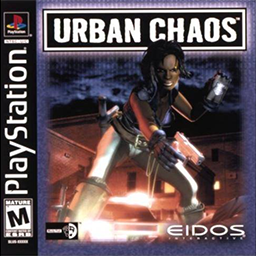
Urban Chaos is the debut video game of English developer Mucky Foot Productions with its initial release in 1999 on Microsoft Windows. It was subsequently released on the PlayStation and Dreamcast. The game was published by Eidos Interactive.

South Park Rally is a kart-style racing video game released in early 2000 based on the American animated sitcom South Park published by Acclaim Entertainment and released for the PlayStation, Microsoft Windows, Nintendo 64, and Dreamcast. Gameplay follows the player in a competitive racing championship set in the fictional town of South Park. Players are given the options for multiplayer, arcade, or championship modes, but only the championship unlocks extra features. Competition begins in South Park's 1st Rally, a circuit race around four checkpoints in the downtown area of South Park. Races get gradually more diverse, with more locations, racers, and elements added as the game progresses.
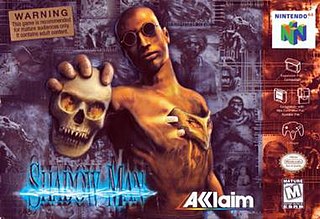
Shadow Man is an action-adventure video game developed by Acclaim Studios Teesside and published by Acclaim Entertainment. It is based on the Shadow Man comic book series published by Valiant Comics. The game was announced in 1997 and was originally slated for a late 1998 release on Nintendo 64 and an early 1999 release for Microsoft Windows, but was delayed to August 31, 1999. A PlayStation version was also released on the same day. A Dreamcast version was released three months later on December 1.

NHL 2000 is an ice hockey video game developed by Electronic Arts Canada. It was released in 1999 and was the successor to NHL 99.
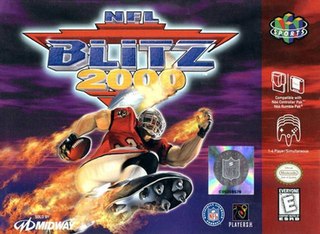
NFL Blitz 2000 is a video game released in the arcades in 1999 and then ported to the PlayStation, Nintendo 64, Dreamcast, Windows, and Game Boy Color. It is the third game in the NFL Blitz series.

Star Trek: Hidden Evil is a third-person action-adventure video game released in 1999 by Activision. It was developed by Presto Studios over the course of a year, and was specifically created for the casual gamer market. The plot followed up on the events in the film Star Trek: Insurrection, with the player portraying the character of Ensign Sovok, who works alongside Captain Jean-Luc Picard and Lt. Cmdr Data, with Patrick Stewart and Brent Spiner reprising their roles.

MiG Alley is a combat flight simulation game, developed by Rowan Software for PCs with Windows, and was published by Empire Interactive in 1999.

The Dukes of Hazzard: Racing for Home is a racing video game published by SouthPeak Interactive that was released for the PlayStation in 1999. The game was later released for Game Boy Color and Microsoft Windows in 2000. It is based on the television show, The Dukes of Hazzard. Waylon Jennings, James Best, Ben Jones, Sonny Shroyer, and Tom Wopat reprised their characters by providing their voices to the PC and PlayStation versions of the game. A sequel titled The Dukes of Hazzard II: Daisy Dukes It Out was released in 2000.

Wizards & Warriors is a role-playing video game for Microsoft Windows designed by David W. Bradley.

Shadow Company: Left for Dead is a real-time tactics game developed by Sinister Games and published by Ubi Soft for Microsoft Windows in 1999. The player begins the game with only a three-man squad, left for dead after an operation in Angola for a company called Granite.
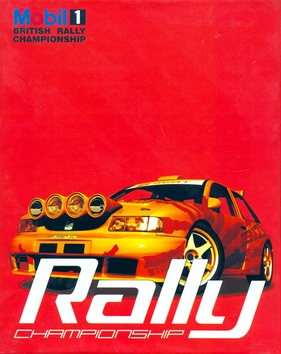
Mobil 1 Rally Championship is a rally video game which is part of the Rally Championship series. It is a sequel to International Rally Championship (1997). The game was released for Windows in 1999. PC version was developed by Magnetic Fields and Creative Asylum and published by Actualize. PlayStation version was developed by Atod and HotGen Studios and published by Electronic Arts. The Windows version is notable for stages based on real-life Ordnance Survey and Ordnance Survey of Northern Ireland maps. A sequel, Rally Championship Xtreme, was released in 2001.
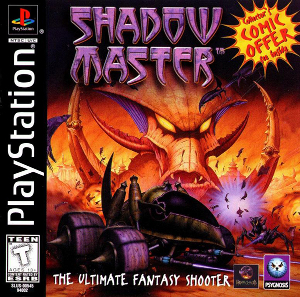
Shadow Master is a video game developed by HammerHead and published by Psygnosis for the PlayStation and Microsoft Windows. It is a first-person shooter in which the player character rides in an armed vehicle. It met with predominantly negative reviews which praised its visuals but criticized it for clunky controls and poorly designed, frustrating gameplay.

Pro Pinball: Fantastic Journey is an action video game developed by Cunning Developments, published by Empire Interactive and distributed by Take-Two Interactive for Microsoft Windows and PlayStation. It is the fourth game in the Pro Pinball series. Elements of the game include combinations of Victorian era settings, steam powered machinery, steampunk style nautical adventures, and fictional islands.

Invictus: In the Shadow of Olympus, also known as simply Invictus, is a video game developed by Quicksilver Software, Inc. and published by Interplay for Windows in 2000.
